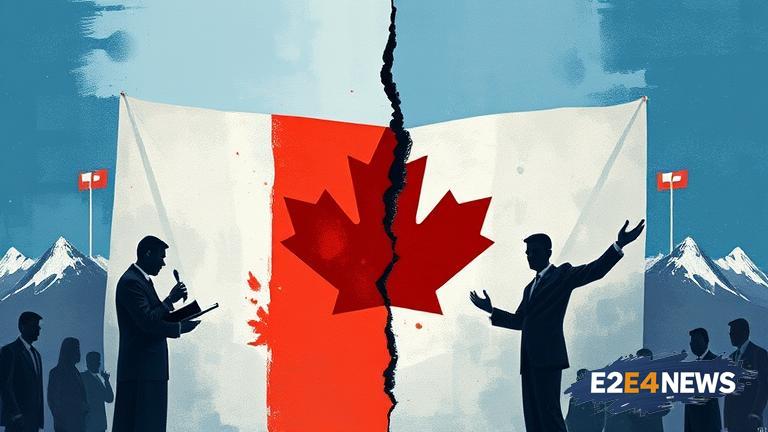The province of Alberta is at a crossroads, with a growing movement calling for separation from Canada. The Alberta separation referendum has been a topic of discussion for months, with various groups and individuals proposing different questions to be put to voters. Recently, two dueling questions have emerged, sparking intense debate and discussion among Albertans. One question, proposed by the Alberta government, asks voters if they want to remain part of Canada, while the other, put forward by a separatist group, asks if Alberta should become an independent nation. The dueling questions have raised concerns about the legitimacy and clarity of the referendum process. Some argue that the questions are too vague or misleading, and that voters may be confused about what they are actually voting for. Others claim that the questions are an attempt to sway public opinion or undermine the separatist movement. The Alberta government has stated that its question is designed to provide clarity and certainty for voters, while the separatist group claims that its question is more straightforward and honest. As the debate rages on, many Albertans are left wondering what the future holds for their province. The separation movement has been fueled by a sense of frustration and disillusionment with the federal government, which some Albertans feel has neglected their province’s interests. The oil and gas industry, a major driver of Alberta’s economy, has been particularly hard hit by federal policies, leading to widespread job losses and economic hardship. Many Albertans feel that separation would allow them to take control of their own destiny and make decisions that benefit their province, rather than being dictated to by Ottawa. However, others are concerned about the potential consequences of separation, including the impact on trade, healthcare, and social services. The Canadian government has warned that separation would be a complex and difficult process, requiring significant negotiations and compromises. Despite these warnings, the separatist movement continues to gain momentum, with many Albertans attending rallies and town hall meetings to discuss the issue. The dueling questions have also sparked a wider debate about the role of referendums in Canadian politics, with some arguing that they are an essential tool for democratic participation, while others claim that they can be divisive and misleading. As the referendum approaches, Albertans will be forced to make a difficult decision about their future, one that will have far-reaching consequences for their province and the country as a whole. The outcome is far from certain, and the debate is likely to continue in the coming weeks and months. In the meantime, Albertans are being encouraged to educate themselves about the issues and to participate in the democratic process. The Alberta separation referendum is a complex and multifaceted issue, with many different perspectives and opinions. Ultimately, the decision will depend on the will of the people, and it remains to be seen what the future holds for this western Canadian province. The debate over the dueling questions is just the beginning, and the real work of building a new future for Alberta is only just starting. As the province moves forward, it will be important to consider the potential consequences of separation, as well as the potential benefits. The Alberta government and the separatist movement will need to work together to find a solution that works for all Albertans, regardless of their views on separation. The future of Alberta is uncertain, but one thing is clear: the decision made by voters will have a lasting impact on the province and its people.
